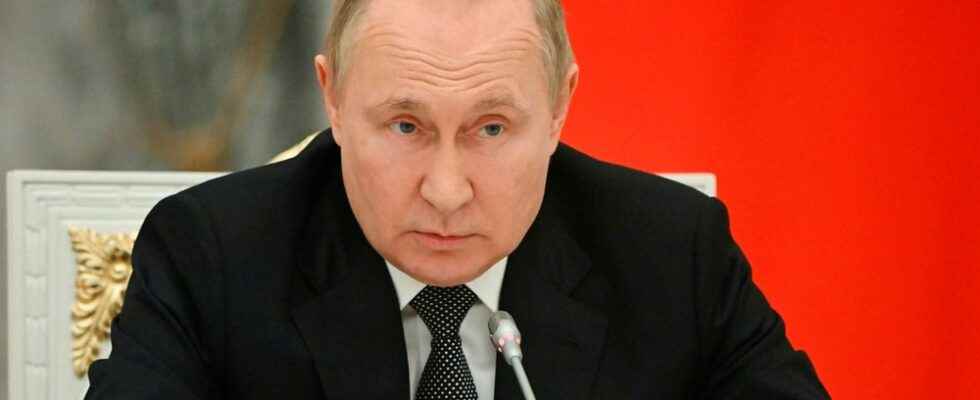It is not uncommon for a proposal by the Russian president to be confusing. Sometimes it’s about getting the opponent out of balance, sometimes it’s about sowing division. Still, it is difficult to understand what Putin was looking for when he stated in a comment that Ukraine is expected to be a candidate country for the EU that he does not see any problems with Ukrainian membership of the European Union:
– We do not mind it. It’s not a military bloc. It is the right of every country to join economic associations, Putin said during this year’s economic forum in St. Petersburg.
Implied: The EU may exist, unlike the NATO military defense alliance, which in Moscow is considered an aggressive threat to Russia.
It may seem like a logical reasoning. But there’s something wrong with the statement. After all, it was the EU issue that started the events in Kyiv in the autumn of 2013, which in turn led to Russia’s invasion and the great war in Europe that has been going on for almost four months.
‘Let’s starve them until they agree to be our friends’ Such a pleasant person. And then Russians wonder why no one respects them! https://t.co/umxxbHH1GZ
— Michael McFaul (@McFaul) June 20, 2022
In the autumn of 2013, Ukraine’s then pro-Russian President Viktor Yanukovych had negotiated a cooperation and trade agreement with the EU. But that worried the Kremlin, because a Ukrainian association agreement with the EU – not a membership – would further reduce Russia’s influence in Ukraine. Putin forced Yanukovych to withdraw from the agreement in order to include Ukraine in the “Eurasian Union” led by Russia.
The result was the popular uprising that came to be called Euromajdan. At the end of February 2014, after a few months of demonstrations, the police shot dead over 100 people. The next day, Yanukovych fled to Russia.
Putin responded in turn, annexing the Crimean peninsula and sending special forces to eastern Ukraine, which established pro-Russian dictatorships in Donetsk and Luhansk.
Now Putin suddenly says that the Ukrainian EU rapprochement that in 2014 gave him reason to intervene militarily in Ukraine – and thus violate international law – is completely in order.
At the same time, several Kremlin-affiliated politicians are coming up with completely different messages.
Duma member Vyacheslav Nikonov has said that “Ukraine will not exist long enough to join the EU”. That statement is in line with Putin’s basic view that the territory of the former Soviet Union corresponds to historic Russia, which is to be re-established as an empire.
It is worth noting that Nikonov is the grandson of Stalin’s Foreign Minister Vyacheslav Molotov, best known for the Molotov-Ribbentrop Pact, the 1939 friendship agreement that divided Eastern Europe between the two totalitarian dictatorships of the Soviet Union and Nazi Germany.
Former Prime Minister and President Dmitry Medvedev – now deputy head of the Russian Security Council – said for his part: “Who said that Ukraine will even be on the world map in two years?” And then he added: “Ukraine will not be able to join the EU, because the European Union will no longer exist on the day a Ukrainian membership can become relevant.”
Of course, the decisive factor is not different statements but what the Kremlin does. And then a different picture emerges than acceptance of the EU: A policy that seeks to destabilize, threaten and pressure the EU into concessions. Putin’s goal is to get the West’s ‘permission’ to conquer and annex more of Ukraine.
One of the methods is to block grain exports from Ukraine – something that EU Foreign Minister Josep Borrell has called a “war crime”. It could trigger a famine in Africa. The Kremlin’s calculation is that food shortages will create a mass exodus to the EU, of a similar nature as during the refugee crisis that was largely provoked by Russia’s war in Syria.
Moscow thus uses not only energy, but also food, as a weapon in its blackmail against the outside world.
That mindset was openly expressed by the Kremlin’s propagandist Margarita Simonjan at last week’s economic forum in St. Petersburg: “It is being talked about in Moscow: All our hope is in hunger. The famine will start now and they will lift the sanctions and become our friends, because they realize that it is impossible not to be friends with us. “
